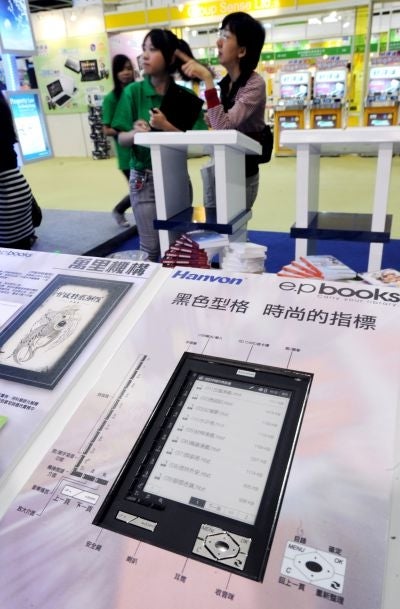Hard times for traditional books as China’s digital publishing industry grows

Pity the poor paperback. The days of the traditional book in China are numbered, according to figures just released by the central government, as it seems that more and more people are now turning their attention to digital forms of publishing.
China's General Administration of Press and Publication says that in 2009 for the first time the value of digital publications surpassed that of traditional means.
Internet, e-books, computer-based reading software and mobile phones are now the preferred choice when it comes to sourcing reading material in China.
Sales of digital materials had reached 79.9 billion yuan (nine billion euro) last year and that number was expected to be topped in 2010.
Also, a survey by the Chinese Institute of Publishing Science found that almost one in four people in mainland China aged between 18 and 70 now primarily used digital formats for their reading material. Among those aged under 29, though, that figure was 50 per cent.
And an astonishing 91 per cent of the 20,000 people polled in the survey said they would now not bother to buy printed books if they could find a digital version.
Mainland China's e-reader makers have responded quickly to the trend with Shanda Literature releasing its Bambook reader - and at the same time claiming it had access to a digital library of three million books and 1,000 journals for people to peruse.
Shanda is now targeting the 90 per cent share the more established Hanvon Technologies has in China with an assortment of e-readers. Hanvon has claimed 270,000 e-readers sold in China last year - and is predicting sales of up to two million this year.
Bad news for book shops, it would seem. But Chen Fuming at least is a realist. The manager of one of the largest traditional books shops in the southern Chinese city of Guangzhou has admitted he might soon be forced to close his doors due to lack of interest. But he remains philosophical.
"Even I myself now prefer to read fiction with my mobile phone. It's cheap and convenient," he told the South China Morning Post.
MS
Join our commenting forum
Join thought-provoking conversations, follow other Independent readers and see their replies
Comments
Bookmark popover
Removed from bookmarks